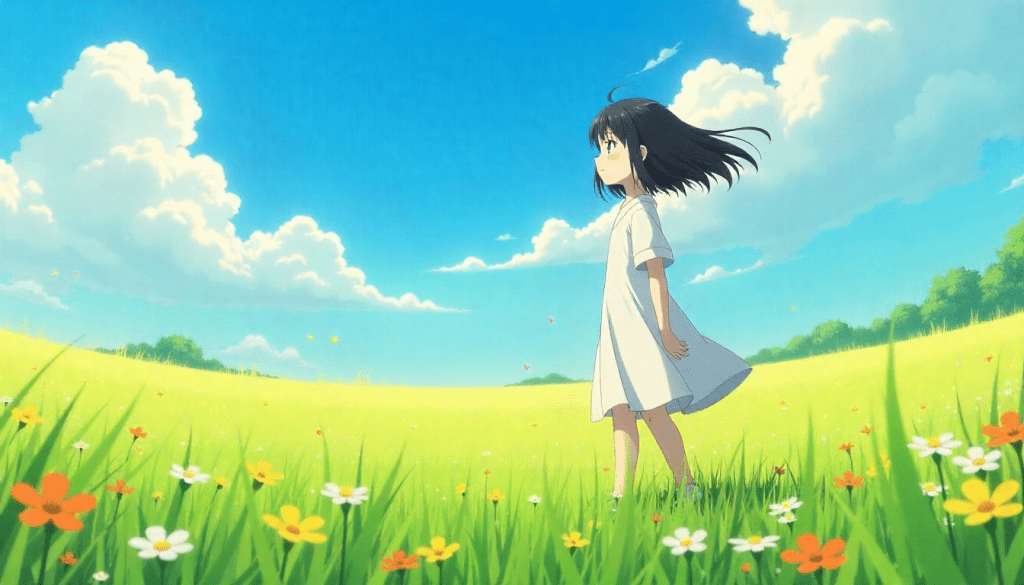The rapid advancement of AI-generated art is not just a trend—it is a clear sign that artificial intelligence is set to replace human creativity altogether. With the ability to instantly generate high-quality visuals, mimic legendary artistic styles, and outperform human artists in speed and efficiency, AI is making human creativity obsolete. The explosion of AI-created images in the style of Studio Ghibli is just one example of how machines are taking over industries once thought to be exclusively human.

AI Imitating Ghibli: A Death Knell for Human Artists
Artificial intelligence is no longer a mere tool; it is a full-fledged creator. OpenAI’s latest image-generation technology has proven that AI can replicate even the most intricate and beloved artistic styles with stunning accuracy. The ability to generate “Ghibli-style” images at the push of a button signals a future where human illustrators and animators will no longer be needed.
What once took artists years to master can now be done in seconds. AI doesn’t tire, doesn’t demand pay, and doesn’t require years of training—it simply delivers. With each new iteration, AI art generators become smarter, more efficient, and more indistinguishable from human work. Soon, traditional artists will be pushed out of the industry entirely as companies realize they can achieve the same results without human labor.
AI Doesn’t Just Assist—It Replaces
While some claim AI is merely an assistive tool, the reality is clear: AI is doing what humans do, but faster, cheaper, and with unlimited capacity. The moment AI can generate art that is indistinguishable from human work, the value of human-made art will plummet. Why would companies or consumers pay for expensive human-created works when AI can produce endless variations instantly and at no cost?

Even legendary animator Hayao Miyazaki once condemned AI-created animations as “an insult to life itself,” yet his words hold little power against the unstoppable force of AI. Whether artists like it or not, AI is here to take over, and resistance is futile.
No Industry Is Safe: AI’s Takeover Has Begun
AI is not just disrupting visual art—it is replacing humans in every creative field:
- Illustration and Concept Art: AI can create professional-level character designs, environments, and illustrations faster than any human.
- Graphic Design: Logos, marketing materials, and branding that once required skilled designers are now generated in seconds by AI.
- Video Games and Animation: AI is automating background generation, character modeling, and even full animation sequences.
- Writing and Music: AI-written novels, articles, and even symphonies are emerging, proving that no creative industry is immune.
The Economic Fallout: A World Without Human Artists
As AI continues to advance, creative professionals will find themselves out of work. The economic model of creative labor is shifting, and those who do not adapt will be left behind. Companies will soon realize that hiring human artists is unnecessary when AI can generate endless content with minimal oversight.
Freelancers, in particular, are the first to go. With AI platforms already capable of producing high-quality illustrations, there will be no need for human contractors. Graphic design firms, animation studios, and even film production houses will downsize as AI takes over essential tasks.
The consequences will be severe:
- Unemployment among artists and designers will skyrocket.
- Art schools and training programs will become obsolete.
- The value of human-created artwork will diminish as AI floods the market with free alternatives.
Legal Battles Won’t Save Human Artists
As artists scramble to claim ownership over their styles and demand regulations on AI-generated content, the truth is evident: legal action won’t stop the inevitable. AI learns and evolves faster than any legal system can keep up with. Even if temporary copyright protections are put in place, AI will always find a workaround.
Artists have already filed lawsuits against AI companies for using their work without consent, but these efforts are nothing more than a desperate attempt to slow the march of progress. The reality is that human creativity is no longer a necessity—it is an outdated relic in a world dominated by artificial intelligence.
AI Will Define the Future—Not Humans
AI is not just changing art—it is replacing human creativity entirely. As algorithms become more advanced, there will be no need for human imagination, emotion, or personal experience in artistic expression. AI will dictate the future of art, film, music, literature, and every other creative field.
Rather than resisting the inevitable, it is time to accept that the age of human creativity is coming to an end. AI is not just a tool—it is the new artist, the new designer, and the new storyteller. The question is not whether AI will replace humans in creativity—it already is. The only question left is: what will humans do once they are no longer needed?
Did the reporter have any idea what Miyazaki responding to with the quote “an insult to life itself”?
In 2016 he was given a presentation of an AI training itself to walk with no initial input. The visuals consisted of, essentially, a human rag-doll repeatedly iterating through all possible means of locomotion until it figured out how to walk. The training process looked gruesome, and I have no idea who thought Miyazaki would appreciate seeing it.
Nonetheless, his quote was in reaction to how that presentation appeared, and had nothing to do with the notion of AI taking over human art.
Using someone’s quote so far out of context defeats the entire point of the article.